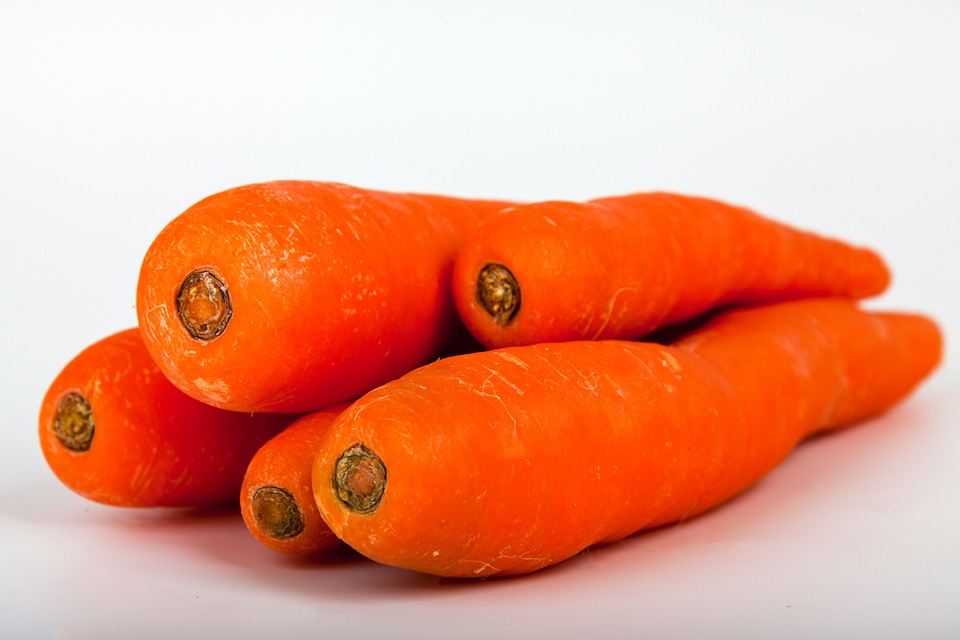This article dispels the common misconception that carrots are a rabbit's favourite food, revealing the true nature of a rabbit's diet and the crucial elements for maintaining their health and well-being. We will delve into the importance of hay, the role of fresh foods, and the dangers of sugary treats, equipping you with the knowledge to provide your rabbit with a balanced and fulfilling diet.
Part 1: Debunking the Carrot Myth

1.1 The Root of the Misconception
The image of a rabbit munching on a carrot is deeply ingrained in popular culture, thanks to children's stories and cartoons. While carrots are not toxic to rabbits, they are far from their ideal food source. This pervasive myth can lead to dietary imbalances and health problems for rabbits.
1.2 Understanding Rabbit's Natural Diet
Rabbits are herbivores, meaning their digestive system is specifically designed to process plant matter. In the wild, they thrive on a diet primarily composed of grasses, herbs, and leafy greens, consuming a diverse range of vegetation.
Part 2: The Foundation of a Rabbit's Diet: Hay

2.1 Hay: The Essential Fiber Source
Hay, not carrots, should form the cornerstone of a rabbit's diet, comprising about 80% of their daily intake. It provides crucial fiber, promoting healthy digestion and preventing dental problems.
2.2 Types of Hay for Different Life Stages
Different types of hay offer varying nutritional profiles. Timothy hay, known for its low calorie and protein content, is ideal for adult rabbits. Alfalfa hay, higher in calories and protein, is suitable for growing rabbits, pregnant, or lactating females.
- Timothy Hay: A good choice for adult rabbits due to its low calorie and protein content.
- Alfalfa Hay: Higher in calories and protein, suitable for growing rabbits, pregnant, or lactating females.
- Oat Hay: Offers a moderate amount of calories and protein, suitable for mature rabbits.
- Grass Hay: A good source of fiber, suitable for adult rabbits.
2.3 The Role of Hay in Dental Health
Rabbits' teeth grow continuously throughout their lives. Chewing on hay helps to wear down their teeth, preventing dental problems like malocclusion, which can be painful and require veterinary intervention.
Part 3: The Importance of Fresh Foods
3.1 The Benefits of Variety
Fresh foods, such as leafy greens and vegetables, should supplement the hay-based diet. They provide essential vitamins and minerals and offer a welcome change in texture and taste.
3.2 A Guide to Safe and Healthy Choices
- Leafy Greens: Kale, spinach, romaine lettuce, dandelion greens, parsley, collard greens, and mustard greens. Offer these in moderation as they can be high in oxalates which can hinder calcium absorption in the long term.
- Vegetables: Bell peppers (red and green), broccoli, carrots (in moderation), celery, cucumber, zucchini, and butternut squash.
- Fruits: Apples (without seeds), bananas (in moderation), berries (strawberries, blueberries, raspberries), and melon.
3.3 Avoiding Toxic Foods
It's crucial to avoid foods harmful to rabbits.
- Avocado: Contains persin, a toxic substance for rabbits.
- Chocolate: Contains theobromine, a stimulant toxic to rabbits.
- Onions and Garlic: Contain sulfides, which can damage red blood cells.
- Rhubarb: Contains oxalates, which can lead to kidney stones.
- Potatoes: Green potatoes contain solanine, which is toxic.
- Nuts and Seeds: While some nuts and seeds can be offered in moderation, avoid offering them too frequently as they are high in fat.
Part 4: The Dangers of Sugary Treats
4.1 The Impact of Sugary Treats on Rabbit Health
Sugary treats, such as commercial rabbit biscuits, often high in processed carbohydrates and artificial ingredients, can lead to various health issues.
- Obesity: Excessive sugar intake contributes to weight gain, putting rabbits at risk of cardiovascular problems and joint issues.
- Dental Problems: Sugary treats can stick to teeth, promoting bacteria growth and contributing to tooth decay and dental abscesses.
- Digestive Issues: A diet high in sugar can upset the delicate balance of gut bacteria, leading to diarrhoea, gas, and digestive problems.
4.2 Moderation is Key
Occasional treats, like small pieces of fresh fruit, are acceptable as long as they are given in moderation and do not replace a balanced diet.
Part 5: The Crucial Role of Water
5.1 Water: Essential for Hydration
Rabbits require access to fresh water at all times. Dehydration can lead to various health issues, including kidney problems, urinary tract infections, and heatstroke.
5.2 Providing Water Sources
Water can be provided in different ways:
- Water bowls: Ceramic bowls are preferred as they are less likely to tip over and are easier to clean.
- Water bottles: Ensure the bottle is cleaned regularly to prevent bacteria growth. Some rabbits prefer water bottles to bowls.
5.3 Monitoring Water Consumption
Regularly check water levels to ensure your rabbit has adequate access to water. A decrease in water consumption can indicate a health issue.
Part 6: Understanding the Rabbit Digestive System
6.1 The Unique Process of Caecotrophy
Rabbits practise caecotrophy, a fascinating digestive process. They produce soft, nutrient-rich droppings called caecotrophs, which they consume directly from their anus. These caecotrophs contain essential vitamins and nutrients not fully absorbed during the first pass through the digestive system.
6.2 Maintaining a Healthy Digestive System
A balanced diet, with ample fiber from hay, is crucial for a healthy digestive system. It promotes regular bowel movements and prevents issues like constipation or diarrhoea.
Part 7: Recognizing the Signs of a Healthy Diet
7.1 Indicators of a Well-Nourished Rabbit
Observing your rabbit's health and behaviour can help determine if they are receiving a balanced diet.
- Shiny Coat: A healthy rabbit has a smooth, glossy coat, indicating good nutrition.
- Active and Energetic: Rabbits should be lively and playful, exhibiting normal activity levels.
- Normal Stool Production: Regular, firm, and well-formed droppings are a sign of healthy digestion.
- Healthy Appetite: Rabbits should have a healthy appetite, consuming hay and fresh foods readily.
7.2 Warning Signs of Nutritional Deficiencies
Changes in your rabbit's appearance or behaviour could indicate nutritional deficiencies:
- Dull Coat: A dull or matted coat can signal inadequate nutrition or a health issue.
- Lethargy: A rabbit that is inactive or sluggish might not be getting enough nutrients.
- Dental Problems: Malocclusion, tooth decay, or dental abscesses can be a result of poor diet, specifically low fiber intake.
- Digestive Issues: Diarrhoea, constipation, or gas can indicate digestive problems, which may be related to a diet lacking in fiber or containing too much sugar.
Part 8: The Importance of Veterinary Consultation
8.1 Personalized Dietary Advice
It's essential to consult with a veterinarian specializing in rabbit care for personalized dietary recommendations. They can assess your rabbit's age, breed, and individual health needs to determine the most appropriate diet.
8.2 Addressing Specific Concerns
Veterinarians can provide guidance on addressing specific dietary concerns, such as weight management, dental health, or digestive issues.
FAQs
1. What are the best vegetables to feed a rabbit?
Bell peppers, broccoli, carrots (in moderation), celery, cucumber, zucchini, and butternut squash are good choices.
2. How often should I give my rabbit carrots?
While carrots are not toxic, they are high in sugar. Aim for a small piece a few times a week, ensuring it is part of a balanced diet.
3. How much hay should my rabbit eat?
Hay should make up approximately 80% of your rabbit's diet. Provide an unlimited supply of fresh hay at all times.
4. Can I give my rabbit store-bought rabbit food?
Store-bought rabbit food can be a supplement to a hay-based diet. However, it should not be the primary food source. Choose a high-quality food with limited sugar and high fiber content.
5. What should I do if my rabbit is not eating?
If your rabbit is not eating, contact a veterinarian immediately. This could indicate a serious health issue.
6. Can I give my rabbit human food?
Many human foods are harmful to rabbits and should be avoided. Stick to safe and appropriate rabbit foods.
7. How often should I change my rabbit's water?
Fresh water should be available to your rabbit at all times. Change the water at least once a day or more often if it becomes dirty or contaminated.
8. What are the signs of a healthy rabbit?
A healthy rabbit has a shiny coat, is active and energetic, produces normal stool, and has a healthy appetite.
9. What should I do if my rabbit is overweight?
If your rabbit is overweight, consult a veterinarian for advice on a weight-loss plan. This may involve adjusting the diet, increasing exercise, and potentially administering medication.
10. How often should I feed my rabbit fresh foods?
Aim to provide fresh foods daily, offering a variety of leafy greens and vegetables.
Remember, a balanced diet is crucial for maintaining your rabbit's health and well-being. With the right knowledge and a commitment to providing a healthy lifestyle, you can help your rabbit live a long and happy life.
Everyone is watching
-

Do Rabbits Lay Eggs? (The Surprising Truth)
OTHER TYPES OF PETSThis article will unravel the common misconception that rabbits lay eggs, exploring the fascinating world of r...
-

What's a Group of Rabbits Called? (A Comprehensive Guide)
OTHER TYPES OF PETSThis article delves into the fascinating world of rabbits, exploring the various terms used to describe a grou...
-

Can Rabbits Eat Grapes? A Guide to Safe Rabbit Treats
OTHER TYPES OF PETSThis comprehensive guide will explore the safety and suitability of grapes for rabbits, providing detailed inf...
-

Predators That Hunt Rabbits: A Guide to Natural Enemies
OTHER TYPES OF PETSI've always been fascinated by the circle of life, that delicate dance between predator and prey. Growing up ...
-

Are Rabbits Nocturnal Animals?
OTHER TYPES OF PETSThe question of whether rabbits are nocturnal animals is a fascinating one, with a surprisingly complex answer...
